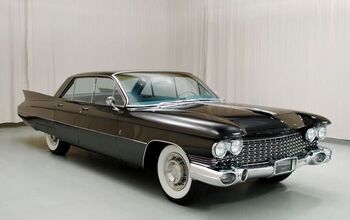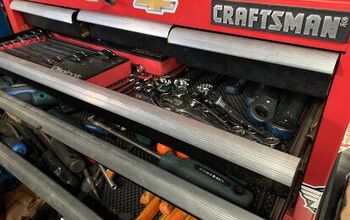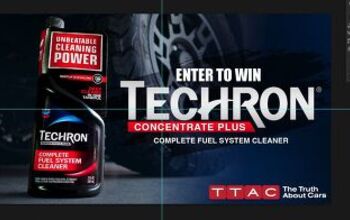Chill Factor: Ford Owner Learns Harsh Hybrid Lesson

It has become a trend. For some reason, perhaps just coincidence, Canadian Ford owners with vehicle complaints seem to air their issues on that country’s national broadcaster.
Recently, it was a man whose 2009 F-150 needs an HVAC module that no one can find. This time, it’s a lady whose gas-sipping 2014 Ford Fusion Hybrid has developed a sludge issue.
The problem mentioned in this CBC report might seem simplistic and easily fixable, but it’s a good lesson for those unaware that how you drive your car can lead to unforeseen problems.
The protagonist in this play bought a Ford Fusion Hybrid two years ago to save on gas. Her daily commute to St. John’s, Newfoundland is about 12 kilometers one way, or about 7.5 miles, through a developed area.
After having her car in the shop five times to diagnose a “check engine” light, she was told that a milky white sludge had built up beneath her oil filler cap. It’s the product of moisture not being burned off, her dealer told her. Driving the vehicle on the highway for 15 to 30 minutes at regular intervals should take care of the problem.
That’s not what a hybrid owner wants to hear. Especially an eco-conscious hybrid owner living in a city where gas retailed for $4.85 a gallon today.
The issue is that the Ford’s internal combustion engine doesn’t spend enough time running — a problem compounded by the area’s cold climate. In terms of gas savings, the vehicle seems like a good choice. Her commute, which rarely sees the vehicle top 70 kilometers per hour (43 mph), maximizes use of the Fusion’s electric motor. Unfortunately, it does so at the expense of the vehicle’s internal combustion engine.
That commute, in that climate, and with no regular highway jaunts (she claims she has no reason to take it on a highway and we believe her – look at St. John’s on a map) means this hybrid buyer is being told something she doesn’t want to hear: Burn more gas. If you swapped this owner’s lifestyle with someone else’s, there wouldn’t be a problem.
TTAC’s Subaru WRX-loving Bozi Tatarevic offered this advice to avoid hybrid engine sludge: hit the redline once a day, or at least engage in some heavy stoplight launches. If hybrid hooning isn’t in your repertoire, accelerating even slightly faster on regular occasions would help bring the engine online more often, even though it defeats the purpose of owning a pricier hybrid. Besides that, the dealer’s advice, however unwanted, is the best bet.
Planned road trips to nowhere will surely get that engine running hot, and might have the owner simmering on a low boil. Right now, she is in talks with Ford Canada, and hopes to have the company buy back her car. Soured on the experience, she plans to never buy a hybrid (or a Ford) again.
What can an automaker do to notify would-be owners of a condition that only occurs under very specific conditions, with a certain type of driving? Even if placed in the owner’s manual (which this buyer says contains no mention of the phenomenon), an owner would only read it after buying the vehicle. Consider this a cautionary tale for buyers.

More by Steph Willems
Latest Car Reviews
Read moreLatest Product Reviews
Read moreRecent Comments
- AZFelix What could possibly go wrong with putting your life in the robotic hands of precision crafted and expertly programmed machinery?
- Orange260z I'm facing the "tire aging out" issue as well - the Conti ECS on my 911 have 2017 date codes but have lots (likely >70%) tread remaining. The tires have spent quite little time in the sun, as the car has become a garage queen and has likely had ~10K kms put on in the last 5 years. I did notice that they were getting harder last year, as the car pushes more in corners and the back end breaks loose under heavy acceleration. I'll have to do a careful inspection for cracks when I get the car out for the summer in the coming weeks.
- VoGhost Interesting comments. Back in reality, AV is already here, and the experience to date has been that AV is far safer than most drivers. But I guess your "news" didn't tell you that, for some reason.
- Doc423 Come try to take it, Pal. Environmental Whacko.
- 28-Cars-Later Mazda despite attractive styling has resale issues - 'Yota is always the answer.


































Comments
Join the conversation
I had this same problem in a old air-cooled VW. How do you get water in a VW?
The lady lives in St. John's, Newfoundland, and for someone who seems like a homebody, there's nothing to entice a puttering hybrid driver to travel to outside the daily commute. Of course, to us car people, we'd be tearing around the island trying to beat our fastest lap while taking in the ocean views. An EV would do her no good as well, just in case she had to take a ferry to the mainland, or do any driving around the island. Pretty sure there's no chargers outside the metro area, and who knows where she will find a charger once she gets to Sydney (Cape Breton Island, NS). That lady simply needs to get out and drive, or take responsibility for purchasing a car that doesn't do what she needs. Ford Canada should be cool about it, and offer her an off-lease standard Fusion and a Tim's gift card. At least everyone kinda ends up with what they need. Oh, and the temps there I hear really don't get that cold or hot, sticking out in the Atlantic like that. I guess interior Newfoundland can get chilly. Someone give me some travel money to find out. :)